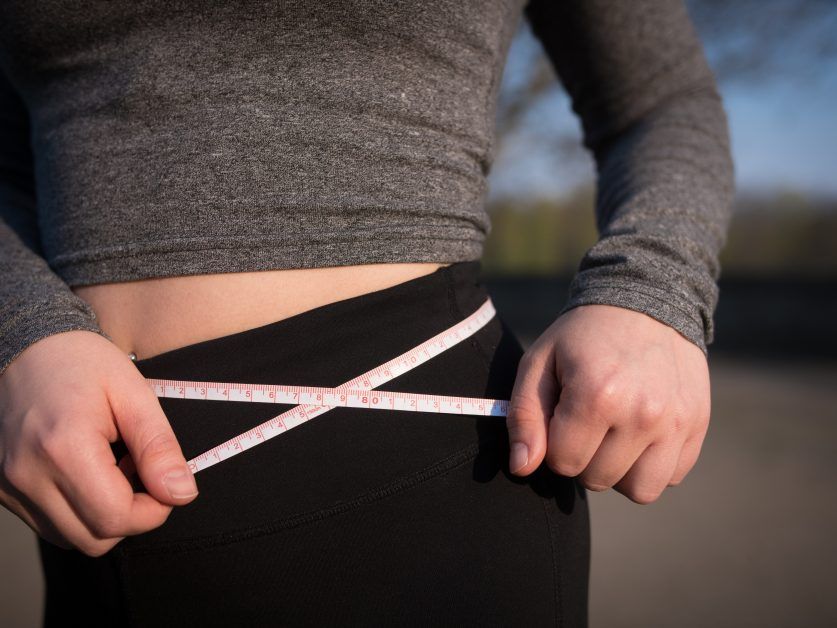Many of us enter into the fitness world because we want to lose weight. We’ve all been there before; you’ve been busting your butt in the gym and trying to eat healthily but you’re still not seeing the results that you want. It’s frustrating to not be seeing the results that you want, especially if you feel that you’re doing everything right. So why does this happen? In this blog, we will be going over some of the various aspects that may be contributing to your weight loss and why you’re not losing the weight you want to be. At Fit In New England, we want to be a part of your fitness journey and are here for all your needs. Our trainers have ample experience and will be able to guide you to whatever fitness goal you have. So let’s take a look at some of the underlying reasons you’re not losing weight like you want to.
Not Sleeping Enough
Sleep is an incredibly important aspect of a person’s overall physical health and sadly it gets pushed to the back burner so many times. In fact, studies have shown that only ⅔ of the population is getting the appropriate amount of sleep every night. No matter what your fitness goal is, you need sleep. You need sleep for weight loss, muscle gain, body recomposition — you need it no matter what! If your body is experiencing poor sleep patterns your body is not able to perform at the top of its game, which means you’re not getting the full benefits out of your workouts. You may be spending less time in the gym, lifting less weight, and not building enough muscle all due to fatigue. Poor sleep can also affect your eating habits. When you experience poor sleep patterns it messes with your body's appetite-regulating hormones, which means you’re more likely to binge on unhealthy foods. You’ll realize you may be feeling constantly hungry and craving junk food, no matter what you’ve eaten prior. Sleep is the time that your body needs in order to repair itself, so don’t put yourself at a disadvantage by not giving it that time. Put yourself first and prioritize your sleep because it's seriously so important.
Not Tracking Your Nutrition
You’ve heard it before, what you eat accounts for so much of your ability to lose weight. Burning fat and losing weight is about creating an energy deficit where you are burning more calories than you’re taking in. As a result of this negative energy balance, your body then has no choice but to turn to its fat stores to get the energy to keep going, allowing you to burn fat and lose weight. While you may think that you know the nutrient levels that you’re putting into your body, if you’re not tracking it, you may be consuming things you were unaware of that could lead you to plateau. Knowledge is power, and this is an exact example of that. While there are many online sites that say they can tell you how many calories you should be consuming, it’s important to understand that these are just giving you an estimate. If you really want to understand more, it's important to meet with a nutritionist that can give you those exact numbers that are specific to your own body. Remember that everything that you put into your body counts, this includes snacking and what you’re drinking.
Mindless Eating and Snacking
This can go hand in hand with the importance of tracking what you eat, especially if you’re a person who likes to snack. While the occasional nibble of a snack here and there may not seem like it's adding up to much, those extra bites can pile up quickly and before you know it you may have consumed hundreds or thousands of calories just from snacking. This can easily take you out of that energy deficit we mentioned earlier and then instead of losing weight, you’re gaining it. Snacking can also become mindless eating or distracted eating, which are two of the biggest enemies of creating a healthy lifestyle. It’s simple: if you’re not paying attention to what you’re putting into your body, you aren’t controlling your food intake, which increases your chances of overeating.
Eating Too Quickly
We’re all busy, but it's important to take your time when you eat. Eating too quickly can lead to overeating, weight gain, bloating, and gastrointestinal stress. When we eat, it takes about 20-30 minutes for our brains to receive the signal that we are full and that we don’t need to consume any more food. For example, if you've been eating your entire lunch or dinner within five minutes, you may still feel hungry and eat more food. However, you did not give your body enough time to process the food, which means you’re most likely overeating. We recommend that you use your mealtime as a way to unplug and relax from the stressors of the day.
Drinking Your Calories
Like we mentioned earlier, everything that you put into your body other than water has some type of caloric value to it. So alcohol, fruit juices, gourmet coffee drinks, sodas, and sports drinks are all contributing to your caloric intake and, many times, they are much higher than we realize. Liquid calories are one of the biggest things that we consume mindlessly because so many of us only equate food to having a caloric value, which is wrong. It’s also extremely easy for us to consume these calories mindlessly and chances are, you’re body probably doesn’t need these extra “benefits” some of these drinks are promising. Our advice is that you just stick to water and the post-workout protein shakes — your body will thank you for it.
Avoiding Dietary Fat
It was once believed that consuming fat would make us fat, however, that is not true. There is no single macronutrient that will make you gain weight, so no amount of protein, carbs, or fat will make you fat. Consuming an excessive amount of calories will make you gain weight. Consuming dietary healthy fat is one of the essential aspects to sustain your body. You need it for hormone production as well as the uptake and absorption of vitamins A, D, E, and K. Some of our favorite healthy fats are salmon, olive oil, nuts, seeds, and avocados. These foods help keep your heart healthy and are packed with important micronutrients.
Stress
When we’re stressed, our bodies naturally release a high level of cortisol, which is a hormone that increases our energy, alertness, and motivation. While this can be helpful in some circumstances, the consistent release of cortisol can become a problem. If a person's cortisol levels rise and are consistently elevated, the body starts to breakdown muscle tissues, decreases fat burning, and will begin to store more body fat. When we’re stressed, we also have a tendency to consume unhealthy foods. We know that stress is a natural part of life and that it can’t be avoided, but try seeking out healthy ways to cope with this stress. Exercise is an incredible stress reliever as well as reading, meditating, stretching, or even drinking a cup of tea.
It’s important to remember that no one is perfect and that we all have our own bad habits that we need to break. At Fit In New England, we're here to help you break those habits and create a healthy lifestyle. All of our trainers are highly experienced and are here to help you reach your goals. We offer a wide variety of fitness classes and are even offering an open gym for new members now through August! Every Monday, Wednesday, Thursday, or Saturday at 9:00 am to try out a free class! We can’t wait to see you, contact us here with any further questions!

